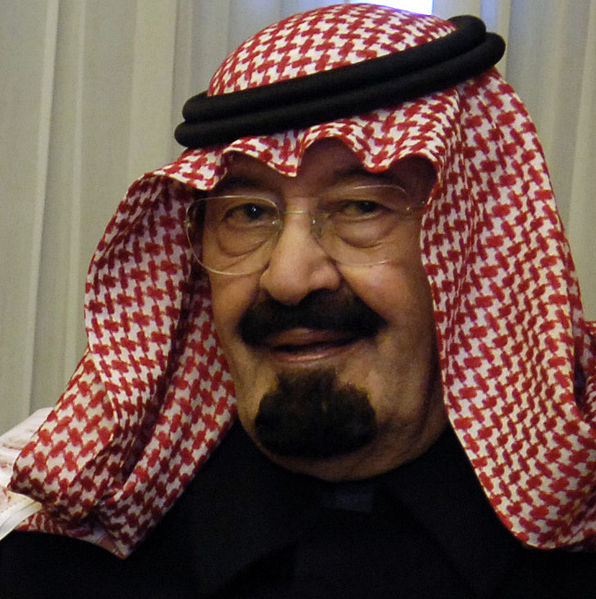Saudi Arabia Moves to Take Down Syria, Iran and Hezbollah
King Abdullah has made his move. If he succeeds, he'll best three enemies for the price of one.
 After months of protests and regime violence, King Abdallah of Saudi Arabia, one of the last absolute monarchs in the world, has called on Syria’s embattled president, Bashar al-Assad, to stop the “killing machine” repressing his own people and accept at least some of the demands of Syrians calling for an end to Assad’s decade old dictatorship. The king backed up his statement by recalling Saudi Arabia’s ambassador from Damascus, and its clients Bahrain and Kuwait quickly followed Riyadh’s lead.
After months of protests and regime violence, King Abdallah of Saudi Arabia, one of the last absolute monarchs in the world, has called on Syria’s embattled president, Bashar al-Assad, to stop the “killing machine” repressing his own people and accept at least some of the demands of Syrians calling for an end to Assad’s decade old dictatorship. The king backed up his statement by recalling Saudi Arabia’s ambassador from Damascus, and its clients Bahrain and Kuwait quickly followed Riyadh’s lead.
The Saudis sense a strategic opportunity has opened in Syria, a unique chance to deal a mortal blow to one of their enemies, the Shia terror group Hezbollah, and a serious blow to their regional adversary Iran. Since Israel’s foolish invasion of Lebanon in 1982, the Syrian regime of Hafez and Bashar Assad has been Iran’s key partner in creating Hezbollah, arming it to the teeth with thousands of rockets and missiles and sending it to create terror throughout the region. For decades Damascus has allowed Tehran to use its airports and ports to transfer arms to Hezbollah, and more recently it has provided much of its own equipment directly to the Shia group. Iranian Revolutionary Guards have been based in Syria and thousands of Iranian tourists and spies have come to worship at Damascus’ Sayyidah Zaynab mosque, a traditional Shia holy site and an excellent place for extremists to get together under the protective eye of Syrian intelligence.
It was at the Zaynab mosque that Hezbollah and IRGC operatives met with Saudi Shia in 1996 to plan the attack on the American air force base at Dhahran in the Kingdom. Nineteen Americans were killed in the Khobar barracks attack, and dozens of Saudis were injured in a nearby neighborhood. Iran and Hezbollah orchestrated the attack. The Saudis have seen Hezbollah terror attacks on their neighbor Kuwait in the past and have accused the party of being behind Bahrain’s troubles this year. On top of all this the United Nations has determined Hezbollah responsible for the murder of the pro-Saudi former Lebanese prime minsiter Rafiq Harriri in 2005. The Saudi grudge against Hezbollah is deep.
The al-Sauds were especially outraged this July when pro-Assad demonstraters in Damascus and other Syrian cities hoisted Hezbollah flags along side Syrian flags to celebrate the anniversary of Bashar’s assumption of power after his father’s death in 2000. A key editorial in the Saudi paper Asharq al-Awsat at the time warned that this blatant display of support for Hezbollah was a step too far for the House of Saud, saying “the al-Assad regime is now wrapping itself in the flag of Hezbollah” a group that targets Sunni leaders and Sunni interests. This editorial prefigured Abdallah’s public remarks this month.
Riyadh worries that Assad will be replaced by chaos, but it has now come to the conclusion the risk is worth the price. If the Assad regime is destroyed, so too will Syrian support for Hezbollah be destroyed. If a new regime emerges that reflects the will of Syria’s majority-Sunni population, it can become a base for destabilizing the Hezbollah-dominated government in Beirut. The power balance in the Levant could be tilted decisively against Hezbollah and undercut Iranian regional influence.
Abdallah spoke with President Barack Obama at the end of last week,and both called for an end to the Syrian regime’s repression of its people. Undoubtedly the Saudis have also urged Washington to see the strategic opportunity in Syria. Washington and Riyadh will certainly continue to disagree on the merits of democracy in the Arab world, but they can cooperate on fighting Hezbollah. For the Saudis the time has come to settle scores with an old adversary.
